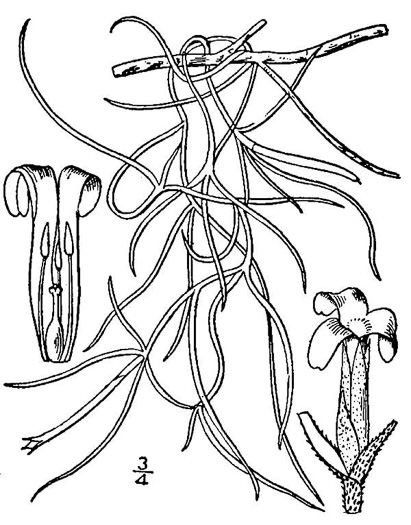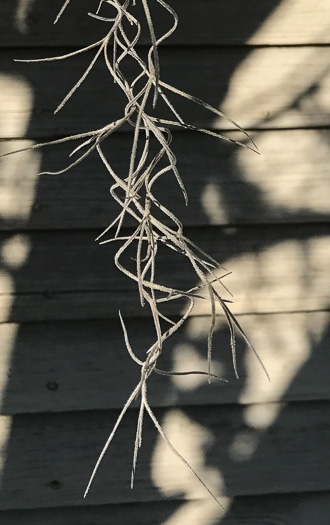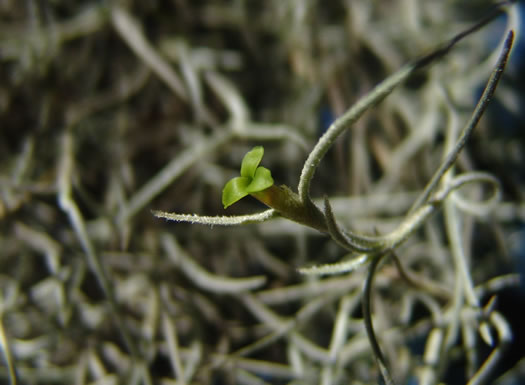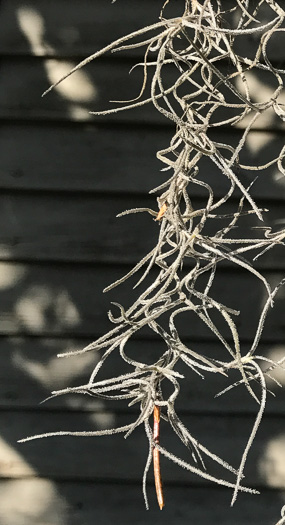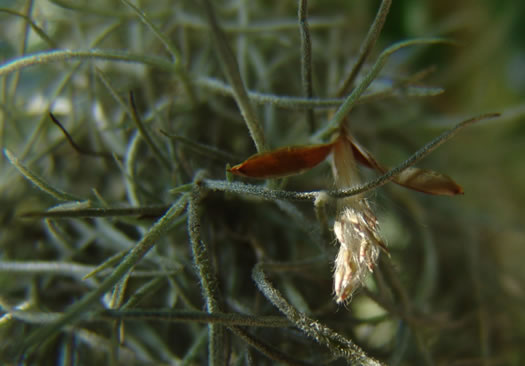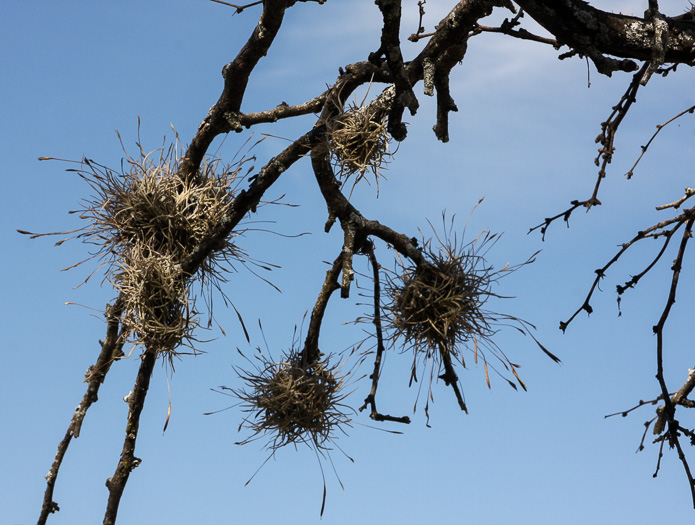Hovering over an image will enlarge it and point out features (works better on desktop than on mobile).
![]() A camera indicates there are pictures.
A camera indicates there are pictures.
![]() A speaker indicates that a botanical name is pronounced.
A speaker indicates that a botanical name is pronounced.
![]() A plus sign after a Latin name indicates that the species is further divided into varieties or subspecies.
A plus sign after a Latin name indicates that the species is further divided into varieties or subspecies.
Most habitat and range descriptions were obtained from Weakley's Flora.
Your search found 2 taxa in the family Bromeliaceae, Pineapple family, as understood by PLANTS National Database.

![]()
![]() Common Name:
Spanish-moss, Long-moss
Common Name:
Spanish-moss, Long-moss
Weakley's Flora: (4/24/22) Tillandsia usneoides FAMILY: Bromeliaceae
SYNONYMOUS WITH PLANTS National Database: Tillandsia usneoides FAMILY: Bromeliaceae
SYNONYMOUS WITH Vascular Flora of the Carolinas (Radford, Ahles, & Bell, 1968): Tillandsia usneoides 037-01-001 FAMILY: Bromeliaceae
Habitat: Branches of trees, especially in swamps and maritime hammocks, but elsewhere where air humidity is high enough, often even in dry forests (for instance, Tillandsia is abundant on Quercus laevis in an extensive very dry longleaf pine sandhills near Wilmington, NC, which receives frequent fog from the Cape Fear, Brunswick, and Northeast Cape Fear rivers)
Common in Coastal Plain (very rare in lower Piedmont)
Native to the Carolinas & Georgia

![]() Common Name:
Ball-moss, Bunch-moss
Common Name:
Ball-moss, Bunch-moss
Weakley's Flora: (4/24/22) Tillandsia recurvata FAMILY: Bromeliaceae
SYNONYMOUS WITH PLANTS National Database: Tillandsia recurvata FAMILY: Bromeliaceae
Habitat: On tree branches in maritime forests (northwards) or southwards epiphytic in a wide range of situations and also on utility wires and rock faces
Rare (historically in NC, but not recently seen)
Native to Georgia Coastal Plain (possibly introduced SC)
Your search found 2 taxa. You are on page PAGE 1 out of 1 pages.

